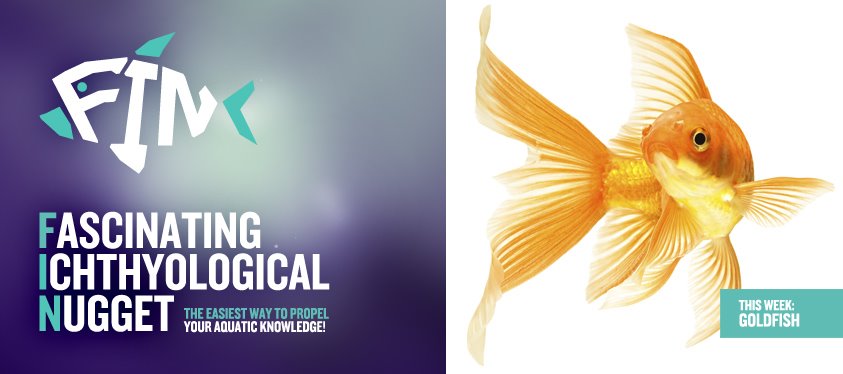Goldfish

The humble 'Goldfish' (Carassius auratus) is no doubt one of the most commonly kept species of ornamental fish. It was first domesticated in China more than a thousand years ago, and several distinct breeds have since been developed. Goldfish breeds vary greatly in size, body shape, fin configuration and colouration (various combinations of orange, red, yellow, brown, blue, white, & black are known). Due to their diversity and appeal, goldfish have been kept as pets longer than any other species of fish, be it either in aquaria and/or ponds.
One seldom known fact about goldfish is their incredible vision. Goldfish have developed what is known as a 'full-spectrum vision'. So advanced is their vision, goldfish are the only animals able to see both UV and infrared light! (Infrared (IR) light is electromagnetic radiation with longer wavelengths than those of 'visible' light, extending from the nominal red edge of the visible spectrum at 0.74 to 300 micrometres. Ultraviolet (UV) light is electromagnetic radiation with a wavelength shorter than that of 'visible' light, extending from the blue edge of the visible spectrum, in the range of 10 to 400 nanometers). This means they are able to see such things as the micro-flashes of static electrical charge and bio-luminescence that appear when a creature hunting with sonar sends sound waves through waters rich in micro-fauna in order to search for its prey. For this reason, goldfish have been widely used as a model system for the study of colour vision by scientists. In addition, their visual ingenuity allows them to distinguish between individual humans. Owners may notice that fish react favourably to them (swimming to the front of the glass, swimming rapidly around the tank, going to the surface mouthing for food, etc.) while hiding when other people approach the tank. Over time, goldfish learn to associate their owners and other humans with food, often "begging" for food whenever their owners approach.
Thank you for reading this edition of FIN ('Fascinating Ichthyological Nugget'): the easiest way to propel your aquatic knowledge! We sincerely hope that you'll find these of interest and want to share them with your friends…



